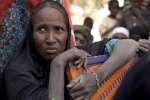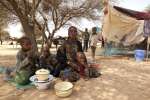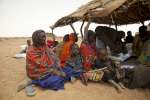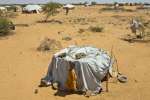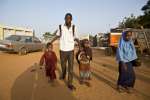In Niger, gas project to support refugees and save trees
Making a Difference, 13 August 2014
ABALA REFUGEE CAMP, Niger, August 13 (UNHCR) – A UN refugee agency project in Niger is empowering refugees and protecting the local environment by improving access to domestic energy, thanks to a key partnership with one local business. As a result, households in the area who had previously struggled to secure firewood, can now look forward to four months of gas.
A groundbreaking contract saw the Niger firm install storage centres in remote refugee sites, where physical and financial access is limited, for distribution and bottling. In return, UNHCR procured bottles, stoves and refills to meet the needs of more than 2,600 refugee households in Abala.
For women like Alkaounatou, a Malian refugee and a single mother with three children, the gas project is invaluable. Previously, she had less than US$1 a day to spend on firewood.
Like thousands stranded in Niger and Mali, it took her three hours to find wood and she sometimes skipped meals in order to afford the day's supply. Schemes to fight malnutrition were being reduced to ashes for a few pieces of firewood. Women were also at risk while out foraging.
Today, Alkaounatou earns more than US$2 through her business. "Before the gas reached us, I was forced to sell part of our food ration to buy firewood," she recalls. "But with the gas project, I could save some money, buy merchandise and open my own business. Now I do not depend only on assistance to feed my children."
Maimouna, another single refugee mother with four children, is now similarly self-sufficient. "Gas has very much relieved me," she says. "At one time I used to fetch wood and I was not able to undertake any other activity. Today, I get up, prepare my noodles and roast my pancakes with gas and I sell them."
The project is the first of its kind in Niger and now UNHCR hopes to mobilize its partners, such as France and the European Commission, to help extend the use of gas to other camps. And as Akiyou, chairman of refugees in Abala, noted, it is not only the displaced and local populations that reap the benefits. "The gas came to the rescue of the trees. When there is no tree, there is no life on earth."





